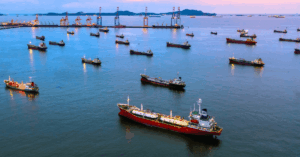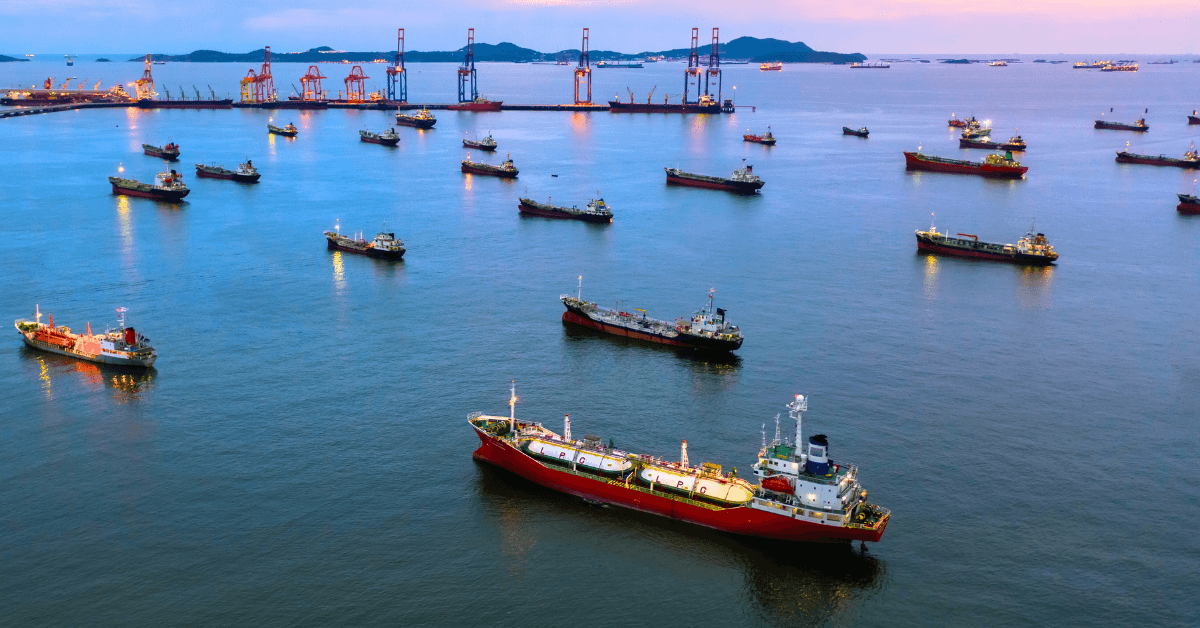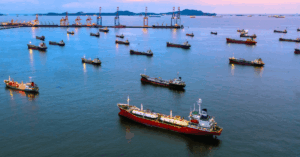
Port Of Barcelona To Reduce Cruise Ship Terminals To Curb Overtourism
July 19, 2025
Video: Hundreds Jump Into Sea As Ferry Catches Fire In Indonesia, At Least 3 Dead
July 21, 2025

Greek-managed oil tankers carrying Russian crude oil to Asia are now avoiding the Red Sea due to increasing Houthi attacks. These vessels are instead sailing the much longer route around Africa via the Cape of Good Hope to reduce the risk of being targeted.
According to information from three oil traders and shipping data from LSEG, tankers such as Minerva Elpida, Minerva Vera, and Nissos Ios, which are transporting a total of about 300,000 metric tons of Russian Urals crude, departed in late June and early July and are headed to India using the southern route around Africa.
This comes after a series of attacks on Greek-operated bulk carriers. In one recent case, a Liberian-flagged ship was hit by drones and speedboats off the coast of Yemen, killing four seafarers.
In another incident in July, the Houthi group sank a separate vessel. The Iran-backed group has claimed that the attacks are being carried out in support of Palestinians during the ongoing conflict in Gaza.
مشاهد استهداف وإغراق سفينة (ETERNITY C) بعدد من الصواريخ الباليستية والمجنحة أثناء قيامها بانتهاك قرار حظر القوات المسلحة اليمنية واتجاهها إلى ميناء أم الرشراش في فلسطين المحتلة. pic.twitter.com/dbs404YF6u
— أمين حيان Ameen Hayyan (@AminHian) July 9, 2025
While many Western shipping companies started avoiding the Red Sea and the Suez Canal route last year, Russian oil shipments had largely continued. This was mainly due to the close relationship between Russia and Iran, which is believed to support the Houthis.
Among the vessels now rerouting, Nissos Ios is a Marshall Islands-flagged Suezmax tanker that can carry up to 1 million barrels of oil. It is managed by Kyklades Maritime and is insured by Norwegian firm Gard for protection and indemnity (P&I).
The Minerva Elpida, a Greek-flagged Aframax tanker with a 0.7 million barrel capacity, and the Malta-flagged Minerva Vera, also a Suezmax, are both managed by Minerva Marine and are insured by NorthStandard.
However, the companies managing these vessels did not respond to questions about who exactly made the decision to change the route. It remains unclear whether it was the shipowners, the charterers, or a joint decision.
Norwegian insurer Gard has pointed out that some ships from the same fleets have made calls to Israeli ports since October 2023. This history of port visits could make these vessels more likely to be targeted by the Houthis.
Taking the route around the Cape of Good Hope roughly doubles the travel time compared to the Suez Canal route. For example, voyages to Europe that typically take 15 days through the Red Sea now take around 30 days. The increased risk has also led to a sharp spike in war-risk insurance premiums, often adding several hundred thousand dollars to a 7-day voyage.
According to NorthStandard, routing decisions are generally made through discussions between the shipowners and the companies chartering the vessels. P&I clubs and war insurers do not usually recommend or decide the route themselves.
Reference: Reuters
Source: Maritime Shipping News


